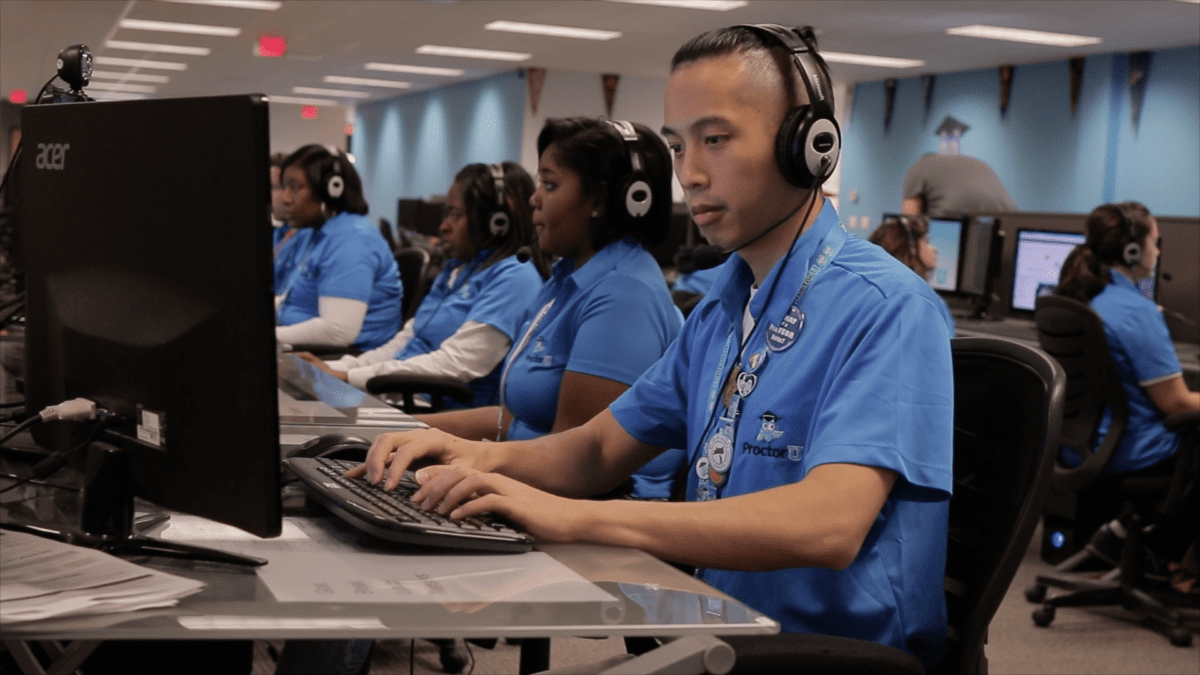Meazure Learning’s Online Exam Proctoring Service, ProctorU, Releases The 2021 Exam Integrity Report

Data from more than three million online exams show that more than six percent of proctored exams contain evidence of attempted or actual cheating – a historic high.
April 26, 2022 – BIRMINGHAM, Ala. – ProctorU, the online exam security and proctoring service of Meazure Learning, today released a major report on exam data from 2021 showing that the rates of potential and actual violations of test rules increased in 2021 when compared to 2020 – which was itself many times higher than historic, pre-pandemic levels.
Three million exams were able to be analyzed in The 2021 Exam Integrity Report to determine how the metrics had changed from 2020, as well as from 2019 and early 2020 before the pandemic started. The data from those three million remotely delivered exams in 2021 span more than 1,000 colleges and universities and from numerous professional testing and credentialing providers.
On the ProctorU proctoring platform, three different types of exam activities that break or would break the rules of the test provider are measured. The most noteworthy metric is confirmed breaches – incidents where trained proctors believe evidence exists that a test-taker violated test rules in a way that may have secured an unfair advantage. These are incidents where academic misconduct likely occurred, though all determinations of misconduct are made by the school or test provider.
In the 15 months before the pandemic, just 0.48 percent of proctored exams contained confirmed breach events. In 2020, that surged to 3.9 percent. In 2021, the confirmed breach rate was 6.6 percent – more than 13x the pre-pandemic levels. In 2021, more than 200,000 exam sessions proctored by ProctorU contained evidence of misconduct.
“The level of confirmable violations of test rules that we’re seeing, incidents of what we would call provable cheating, is obscenely high – exponentially higher than anything we’d seen before the pandemic,” said Dr. Ashley Norris, Chief Compliance Officer at Meazure Learning. “When we see that more than one in every 15 students taking a remote exam is engaging in conduct that can be considered cheating, that’s a significant problem.
“Most troubling of all is that this high breach rate is happening when test-takers know someone is watching, when they know there’s a chance of being caught. We shudder to think what the misconduct rate is when there is no one watching,” said Norris.
Not only is the rate of test breach historically high, the trend continues upward. For example, the months with the two highest rates of confirmed breaches ever, occurred in November and December of 2021.
The rates of exam interventions and breaches for 2021, with comparisons, are:
- In 2021, more than two of every three pre-test sessions had “unpermitted resources” – which are items that are not allowed by exam rules. The 2021 rate is up eight percent over pre-pandemic levels.
- In 2021, 68.7 percent of test sessions began with materials in the test environment that were not allowed
- Pre-pandemic, the rate was 60.3 percent
- In 2021, a “confirmed breach” incident was logged in more than one in every 15 exam sessions. That rate is a 13x increase since the pandemic and a 65 percent increase over 2020.
- In 2021, 6.6 percent of exams had a confirmed breach
- In 2020, the rate was 3.9 percent
- Pre-pandemic, the rate was slightly less than 0.5 percent
Because ProctorU conducts exams for higher education institutions and professional testing bodies and assessment providers, these types of tests can also be compared.
For example, the ProctorU data reports that in 2021 there were more unpermitted resources incidents in professional tests than there were in higher education settings – 69.6 percent in professional testing compared to 64.4 percent in higher education. Confirmed breaches in 2021 occurred more in higher education test sessions compared to professional test sessions – 7.2 percent compared to 3.8 percent, respectively.
Jarrod Morgan, founder of ProctorU and the Chief Strategy Officer of Meazure Learning said, “One theory about why there’s a difference between higher education testing and professional testing is that people taking exams in professional settings such as those for licenses and competency tests are less willing to risk being caught for cheating than college students are. If being caught for cheating means you can never be a lawyer or a pharmacist, even after years of school, that’s a pretty big penalty. We think people are more cautious and more deliberate in those situations.”
In releasing the report, Meazure Learning aims to contribute to conversations about how schools and credential authorities give tests, how they protect the integrity of their grades and credentials and what the education and testing community can do to address the persistent and complex threats of misconduct.
“Assessment cheating remains a serious challenge for everyone in education and professional testing,” said Morgan. “And we need to be frank and initiate open conversations about what is happening.”











Responses